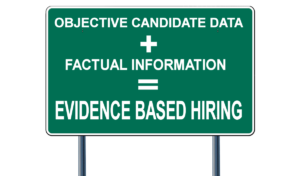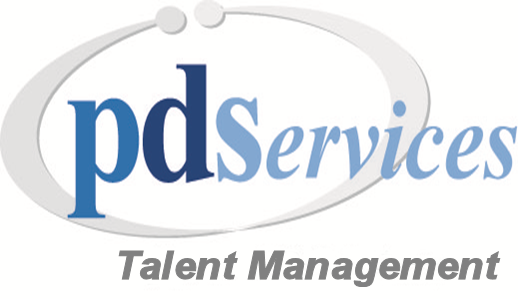Archive for category: General
Job Experience – written for both Hiring Managers and Candidates
Current research tells us that basing a hiring decision on resumes, applications and interviews just doesn’t work anymore. Candidates misrepresent themselves on applications and in interviews more than half the time! Making decisions based on “gut feel” is accurate about 25% of the time!
Develop Your Managers
/in General, Assessments, Whitepaper /by Sue Devendorf
Develop Your Managers
Many executives are recognizing the valuable role leaders / managers play at all levels of the organization. Learn how to develop your managers to make sure they are performing at a high level.
Hire Top Performing Sales People
/in General, Assessments /by Sue Devendorf
How do we know if we are hiring top performing sales people? Have you ever intentionally hired an under-performing sales person? We all want a sales staff to perform at high levels, whether it is your first or your 100th sales person. Here are some tips for hiring top performing sales people.
6 Step Hiring Process
/in General, Assessments /by Sue Devendorf
Recent studies confirm the importance of an organization’s talent. Executives recognize that
recruiting, managing and retaining high performing talent is not only a competitive advantage
but it is imperative for survival. The rapid change in business today has put an even higher
value on attracting and retaining high performers.
Gig Workers
/in Assessments, General /by Phil Devendorf
What is a Gig Worker?
According to Investopedia, ‘In a gig economy, temporary, flexible jobs are commonplace and companies tend toward hiring independent contractors and freelancers instead of full-time employees. A gig economy undermines the traditional economy of full-time workers who rarely change positions and instead focus on a lifetime career.”
Gig workers include independent contractors, freelancers, consultants, part time, and side hustles. Generally, a gig worker is a short term resource and is not a traditional full time employee. It’s estimated that as much as a third of the workforce is involved in gig work in some capacity.
Why are Organizations Engaging Gig Workers?
There are advantages in using gig workers in the right situations:
Avoiding the overhead of permanent employees
Filling a temporary need for specific skills
Filling a temporary need for general skills (i.e. project based)
Provide staffing flexibility for peak needs rather than hire and lay off
The Covid-19 pandemic has accelerated the trend toward engaging gig workers. It has highlighted a need for staffing flexibility, both up and down, as the economy adjusts. Remote working is also a contributor to moving toward gig workers.
Should I use Job Fit Assessments for Gig Workers?
It is important to recognize that your gig workers will contribute to your organization’s success in the same way a traditional employee will. Their productivity and retention (for the required period) will have the same impacts as our traditional employees.
Hiring and onboarding a gig worker often happens more quickly than with a traditional employee. Given the shorter tenure, it is critically important that the gig worker gets up to speed quickly. The manager needs to learn their strengths and weaknesses and how to best communicate with them just as quickly.
Job fit assessments provide objective information about the worker’s reasoning ability and behavioral traits. Comparing these traits to a benchmark of requirements for a specific job, helps ensure the worker is a good fit and can hit the ground running. A manager will not have the normal 6 – 12 month “get to know you” period with a gig worker, and so it is vital that they understand up front, the worker’s traits, their reasoning skills, and how they will fit the job.
You’ll want to use an assessment that is easy to administer, measures traits important to the role, generates results immediately and is easy to use. PDServices offers a family of assessments that meets these needs. There are different assessments for different job levels and benchmarks for specific jobs. And you will be pleasantly surprised by the cost! Give us a shout at 740-326-4494 or info@PDServices.com to try one today.
Tips for Employers and Job Candidates on Pre-Hire Assessments
/in General /by Sue Devendorf
I recently responded to the following questions posted anonymously from someone in transition. I thought it might be helpful to both employers and job candidates. These were the questions.
1. How beneficial are assessments to the hiring process?
2. Is pre-employment testing becoming the norm?
3. How do people in transition prepare for these tests?
4. Does it block candidates who may be seeking new opportunities (career change)?
1. If the employer is using an assessment that is truly valid for hiring, then the assessment can help both employer and candidate to see if you are a good fit for the job. Assessments that measure only personality are probably not the best indicator for hiring. Assessments that measure cognitive, personality, honesty and integrity, and interests, give the best overall picture for a good fit. As a candidate you want to make sure that you will be happy in your new position and as an employer, you want the candidate to be happy and a good performer for your company. Hiring someone who is a good fit will ultimately reduce turnover. A conservative calculation for cost of turnover is 20% of the salary for a job.
2. Yes. This is the norm. Over 80% of companies use assessments. Over 90% of all top performing companies use assessments.
3. You really should not need to prepare. There are sites that will tell people how to “fool” these tests or how to answer questions, but if the assessment is a good one, it is measuring how you learn, your personality traits, honesty, and what you like to do (interests). A good assessment can measure someone who is trying to fool the test. There are no right or wrong answers (except the cognitive piece). Don’t base your answers on how you think the employer wants you to answer. Just answer truthfully. Current assessments benefit both parties. Not only is the employer looking for a candidate who will fit their job and culture, but as a candidate, you should want to know if you would be happy working for a particular company in a particular job. I always went into an interview thinking I was interviewing them as much as they were interviewing me.
4. I am not aware of any that block someone because of a career change. In fact, if you have been unhappy in your current career, it is likely because you weren’t a good fit in that particular job in that particular company. An assessment can help you see if you are a good fit.
Happy hunting and don’t sweat an assessment! You probably won’t know which assessment you will be taking anyway, but regardless, you should not need to prepare. Finally, the assessment is only one piece of many factors used in a hiring decision.
What is Conscientiousness?
/in General /by Sue Devendorf
Conscientiousness – A measure of one’s willingness to work with honesty and integrity, and to follow rules.
Why is Conscientiousness Important in Hiring Decisions?
Conscientiousness and reasoning ability are the top two key measures when predicting job fit and high performance. Conscientiousness is a personality trait that has proven critical in evaluating candidates and selecting new employees. Paul R. Sackett and Philip T. Walmsley of the University of Minnesota – found that conscientiousness was by far the most highly sought after personality attribute for job applicants.
On the surface, the importance of Conscientiousness is obvious. A good employee will be honest and treat others with integrity. This is important in jobs that deal with customers and suppliers. It is particularly important for jobs where the employee has access to a customer’s residence (i.e. plumbers, electricians, HVAC, senior care workers) and/or access to a customer’s personal and financial information like credit cards or social security numbers.
Going a step deeper, Conscientiousness gives us insight into how the candidate will deal with team mates, customers, and suppliers. Integrity is all about one’s moral compass. An individual with high integrity does the right thing even when others aren’t looking, or if it’s inconvenient for the individual. That personality trait builds confidence and trust from others, having a positive impact on personal productivity and the reputation of the organization.
The last phrase in the definition above is “and to follow rules”. We all want employees who will follow our organization’s policies, comply with their supervisor’s direction, and adhere to important processes. This may be as simple as showing up for work on time. A YouGov poll found that one in five Americans (19 percent) are late for work at least once a week. SHRM estimates that employee tardiness costs businesses in the U.S more than $3 billion annually.
With more employees working at home, conscientiousness is an important consideration. For many organizations, this may become a permanent option. You might be interested in our article Do Your Employees Have What It Takes to Work at Home?
When managers clearly communicate job expectations, an employee with high conscientiousness will focus on meeting and exceeding expectations. They are responsible, act with integrity, and bring value to your organization.
Call PDServices today at 740-326-4494 or email info@PDServices.com to learn how you can easily measure a candidate’s conscientiousness, reasoning ability, and other personality traits with a simple and low-cost assessment. You’ll make better hiring decisions leading to reduced turnover and increased productivity.
Why Use a Cognitive Reasoning Ability Assessment Test?
/in General, Assessments /by Phil Devendorf
Cognitive assessments are scientific measurement tools designed and validated by psychometricians. They are used with candidates and employees to help assess job fit. There are problem solving questions using words and numbers, number and shape sequences, and a variety of other question types. Results are used as objective data to understand how a person learns, adapts to change, and solves problems.

Why is Measuring Cognitive Ability Important in Business?
Research shows that cognitive reasoning ability has a very high correlation to job performance. Having the right cognitive fit for the job is key to retention, productivity, and employee engagement. Cognitive reasoning assessments tell an employer how quickly a candidate or existing employee will learn a job and how quickly they can adapt as the job or environment changes. Some jobs require employees to learn at a fast pace, process a lot of information, and solve problems quickly. Other jobs are repetitive, and once you learn them, you simply repeat the process over and over. It’s all about job fit.
If you put someone with lower cognitive reasoning ability into a job that requires processing a lot of information and/or solving complex problems, they will not fit the job and their performance will be below expectations. On the other hand, if you put a person with high cognitive skills into a repetitive job, they will be bored, disengaged, and are likely to quit. A cognitive assessment test provides objective information that you can’t get from traditional hiring methods such as applications, resumes, and interviews. The objective nature of the data also helps to overcome bias by interviewers and managers.
Examples of Cognitive Reasoning in Business
Think of a salesperson who sells a complicated technical product. First, they need to learn the technical details of the product. Second, technology is changing at a rapid pace so they are constantly learning new features and capabilities. When a salesperson talks with a prospective client, the client shares a lot of information about their situation and needs. The salesperson needs to gather that information, process and analyze it, provide a solution, and communicate back to the client in a short timeframe. A top performing sales person must have a high cognitive reasoning ability.
Other jobs requiring high cognitive skills include customer service, engineering, information technology, research, analytics, financial, medical, management, etc.
If you have a production job that is repetitive and you hire someone with high cognitive skills, you will likely be pleased initially, because the person will learn the job very quickly and become productive very fast. However, if the job doesn’t continue to engage their high cognitive ability they will become bored. We’ve seen people who begin to play games on the job, even begin to bypass safety procedures, and try new approaches just to keep their minds engaged. Ultimately, they will look for a job that is more interesting to them, forcing you to return to your recruiting process to replace them. You may have a number of jobs that are fairly repetitive. You should look for someone whose cognitive reasoning ability fits the job.
See more information on pre-employment assessment tests and employee talent assessment tests on our website.
What to look for in a Cognitive Reasoning Assessment Test
There are a number of options available. Some only measure cognitive ability while others combine cognitive, personality, and interests, to assess the total person and overall fit with the job. We advise the latter. The more information you have about a candidate or employee, the better hiring, onboarding and management decisions you will make.
Some things to look for:
Proof of reliability and validity
The vendor should provide a document or book that shows they have done a thorough research study showing the assessment is accurate and measures what is advertised. The psychometric industry provides guidelines in this area.
Ease of administration and use
You will want an assessment that is easy to administer, usually on-line. Results should be easy for recruiters and hiring managers to understand, without extensive training or certifications.
Timeliness
A good assessment test is scored immediately and reports are emailed to the appropriate people. management can make timely decisions.
Candidate experience
If the assessment is too long or too difficult for the job, the participant may get fatigued and anxious, which could affect the outcome. A candidate’s overall experience with your company will be more positive if you are using an appropriate assessment.
Benchmarks
Job fit can indicate the best match for your job and culture.
Reporting
Some reports suggest interview questions and coaching advice based on your benchmark. Additional reports can be run for candidate, management, promotion, team analysis, and more.
Investment
The value of the assessment information must be higher than the cost and time to implement.
PDServices offers a suite of assessments developed for different jobs and job types. They include entry level / hourly, mid-level, and higher level jobs. These assessments include cognitive reasoning ability, personality traits, honesty and integrity, and occupational interest measures that are appropriate for the job level.
It’s easy and affordable. Let’s discuss how assessment testing can benefit your company! Contact us today at 740-397-4928.
How Do You Fix An Ineffective Team?
/in Assessments, General /by Phil DevendorfA True Story of an Ineffective Team

PDServices was asked to help identify and resolve why an executive team at a mid-sized technology company was having difficulty working together and making timely decisions. The President of the organization was frustrated and had already tried a number of things to improve the team’s performance.
How to Assess a Cross-Functional Team
After discussions with the president, PDServices implemented a cognitive and behavioral traits assessment test with the entire executive team. Each executive completed the assessment online and PDServices compiled the results. The assessment provided a normative score for each trait. Normative scores mean that the scores are calculated based on a bell curve of working population scores, allowing an effective point of comparison among the executive team members.
PDServices provided reports for each executive showing job fit for their role in the organization. A team report showed how the executives’ traits related to each other.
The Assessment Test Uncovered the Problem
Each executive’s assessment test results showed a good fit with their role when compared with typical benchmarks for their jobs. The problem was exposed in the team report which showed each team member’s results by trait, plotted together on a single graph.
The entire team was high in cognitive and reasoning ability traits. That was expected for an executive team and actually supports working together effectively since they all process information fairly quickly.
When reviewing behavioral traits, we noticed an outlier in traits such as Sense of Urgency, Assertiveness, Manageability, and Decisiveness. The team scores clustered together toward one side of the scale, but there was one outlier at the other end of the spectrum for each of these traits. As it turns out, the outlier score for each trait belonged to the same individual.
Challenge for Cross-Functional Teams
Remember that each executive fit their role pretty well. The challenge is that their roles called for different characteristics. The team included a few executives that were responsible for research, engineering, production, and financial roles. Fit with those roles requires someone who is detailed, analytical, and structured.
The sales executive was the outlier on these traits. The sales function requires quick decision making, multi-tasking, assertiveness, and a willingness to try new approaches.
Variance among team members provides an opportunity for synergy but also the risk of conflict and dysfunction if the team cannot deal effectively with differences in approach.
Solution
When PDServices first reviewed the results with the President, he had an “aha moment”. He had been considering replacing the sales executive with someone who would work as more of a team player, not pushing back on other team members. After seeing the assessment results, he realized that the sales executive was the one team member who was pushing for more timely decisions from the team. This was exactly what the team needed to improve. He was about to replace the one person who could help the team improve.
The challenge this executive team faced is similar to any team with a wide variance in traits among team members. If the team members do not recognize that they have differences in their core behaviors, leading to differences in approaches to business objectives and issues, the differences may seem personal, causing conflict and leading to distrust. If the differences in traits are openly discussed and understood by all involved, the differences lead to synergies within the team.
The solution for this organization was bringing the team together, reviewing the assessment results, the differences in team traits, and the impact on team performance. Understanding the source of conflict made an immediate impact in cooperation and decision making within the executive team. PDServices also recommended that the team discuss the differences in traits on a quarterly basis, knowing the importance of keeping those differences at top of mind to maximize the synergy.
Moral of the Story
Differences in people’s traits fuel the potential for synergy among any team but they can also be a source of conflict. While you may think you understand your team members, it is very difficult to truly assess their core behaviors without the use of a scientific job fit assessment test. Any team benefits from an objective assessment of each team member’s traits. Open discussion of the varied traits of team members and how to leverage those strengths is the key to success.
Contact us or call 740 397-4928 today to see how we can help make your team more effective!
About PDServices
For over 25 years, PDServices has been working with small and mid-sized organizations to improve their Workforce Management. We help you hire, develop, and retain employees who will fit your jobs and culture. This results in improved productivity, reduced turnover, and increased employee engagement.
Evidence Based Hiring
/in Assessments, General /by Phil Devendorf
We hear “evidence based” a great deal today, evidence based medicine, evidence based management . A main driver is the trend toward data analytics which helps us make evidence based decisions. We are now hearing the terms “evidence based hiring” and “evidence based selection” as a type of HR Analytics.
Evidence based hiring defined: Evidence-based selection is a process that leverages the use of highly relevant quantitative information about applicants to improve selection decisions. We are applying data-based decision processes to talent acquisition decisions.
Research shows traditional hiring methods that only include applications/resumes and interviews are ineffective and lead to gut-feel hiring. Hiring decisions, like many other decisions, improve significantly when based on objective evidence.
At PDServices, we have been in the evidence based hiring business for 25 years. We help clients create benchmarks of high performing employees and use the benchmark with our pre-employment testing tools to help identify candidates who display those same characteristics.
This type of approach helps:
Increase new hire productivity
Reduce turnover
Reduce bias in the hiring process
Improve employee engagement
Follow These 3 Steps to Evidence Based Hiring
Step 1 – Create a job benchmark
Our customers find great value in discussing and documenting the traits they are looking for in a specific job at the start of the hiring process. Stakeholders in this process include hiring managers, recruiters, and any others you feel should have input. We challenge stakeholders to identify objective, measurable traits as much as possible. We use this input to create a “benchmark” of traits that will lead to high performance..
The Harvard Business Review published research showing objective data that has a high correlation to performance in the job:
Reference checks & experience (past performance)
Other objective data that may have value in your specific job benchmark includes but is not limited to:
Skill testing for job related skills
Education level
Academic success (GPA, class ranking, awards)
Occupational interests (motivation)
Background Checks
Drug Tests
Certifications/licenses
The best benchmarks are created by gathering and analyzing data from your top performing employees. There are challenges to this approach. First, it is critical that top performing employees are identified by objective metrics to eliminate subjectivity and bias. Second, many organizations don’t have the benefit of having enough high performers in a given position to make a valid analysis. In those cases, PDServices can provide data based on multi-company research, for cognitive and personality traits which should be included in your benchmark. Other sources like www.onetcenter.org, industry organizations and your own experience may also help.
In our experience, the broader the net for objective data, as long as it is relevant to the job, the better the result. You may find it appropriate to use a weighting scale to show the importance of particular traits. It helps if you can identify “knock-outs” which may disqualify candidates early in the process. For example, if you know a mechanical engineering degree is critical to high performance, you can immediately knock out any candidate that does not have a mechanical engineering degree.
Step 2 – Gather the data
Determine the best sources for data and assign responsibilities to those involved in your hiring process.
Data can be sourced in a variety of ways. Generally, multiple data sources are needed. Candidate provided data may be inaccurate so it can pay dividends to compare results from multiple sources. Some sources include:
Be as objective as possible, recognizing that some traits in your benchmark may be hard to measure on a completely objective basis. For example, if you need to rely on an interviewer to assess certain skill sets, strive for objective questions and use a rating scale to reduce subjectivity as much as possible
Step 3 – Assemble the data and make a decision
Organize your data into a spreadsheet or some other grid to help you objectively evaluate how well candidates fit with your benchmark. This will help you drive your hiring decision by making it an evidence based hiring decision.
Take a second now to contact PDServices at info@PDServices.com or call 740-326-4494 to discuss this approach and to give job fit assessment testing a try in your organization. It’s easy, it’s inexpensive, it provides a great ROI, and you’ll be on your way to better hiring decisions!
Contact PDServices today to schedule a demo and learn how we can help your organization!
Contact Us
PDServices
4015 Executive Park Drive, Suite 100C
Cincinnati, OH 45241
Phone: 740-326-4494
Email: info@pdservices.com
© 2024 PDServices | All Rights Reserved
4015 Executive Park Drive, Suite 100C
Cincinnati, OH 45241
Phone: 740-326-4494
Email: info@pdservices.com
© 2024 PDServices | All Rights Reserved


